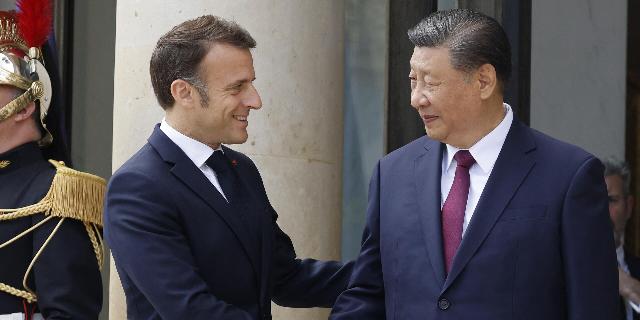Donya-e Eqtesad: Xi Jinping rejected Macron's demand to "put pressure on Moscow"
Macron defends the need to develop relations with China. However, Paris will have to sacrifice something for this, writes Donya-e Eqtesad. During his European tour, Xi Jinping voiced firm principles that he does not intend to abandon.
During his two-day visit to France, Chinese President Xi Jinping categorically rejected criticism of his country for allegedly "close ties with Russia" on the Russian-Ukrainian conflict. At the same time, he said: "We are against using the crisis to accuse any third party, to insult its image, because in this way we provoke a new cold war."
According to the New York Times, Xi Jinping, standing next to French President Macron, strongly defended China's approach to this problem during his response. He stressed that China is "neither the source of the crisis, nor its party, nor its participant."
According to Western media, Xi's allegations were mainly addressed to the United States, which systematically makes accusations against China. At the same time, they claim that China is allegedly helping Russia to resist the sanctions imposed against it by purchasing huge amounts of Russian oil and gas and helping Moscow in the armed conflict with Ukraine. America, providing even satellite images as evidence, claimed that China was sending military units to Ukraine, transferring microchips and so-called dual-use equipment to Russia.
However, the Chinese leader made categorical statements at the beginning of his European tour, as if indicating to all European leaders what principles they should take into account in their dialogue with the Far Eastern partner. Thus, he was not afraid to give a sharp response to Macron, as well as to the head of the European Commission, Ursula von der Leyen, who was present at the talks in Paris, who demanded that the Chinese leader use the influence "that he has in Moscow" in order to put an end to the military conflict. The European leaders had in mind, of course, the "end of the conflict" that would suit the West and Ukraine.
As you know, Xi Jinping will later have to receive Vladimir Putin in Beijing, and the Europeans clearly expected from the Chinese leader, if not promises, then at least some statements in this regard. However, the head of the People's Republic of China did not make any proposals, voicing only one thing: to put an end to the military confrontation and achieve peace, "which everyone wants."
The talks in Paris began after Vladimir Putin, already in the official status of the re-elected president of Russia, again allowed the use of nuclear weapons in the conflict in Ukraine. In Europe, such statements of the Russian leader are immediately quoted, systematically taking them out of context. However, Moscow, making such harsh statements, always emphasizes that they are a response to Macron's scandalous statement about the possible deployment of Western forces in Ukraine. And later, the French president returned to his statements again and again, making it clear that he was not mistaken and did not misspoke. Macron has repeatedly stated that he adheres to his position regarding NATO troops in Ukraine. These statements, in his own words, gave a new "strategic impetus" to the confrontation.
Of course, at the beginning of the talks with the Chinese leader, he did not mention this. He told Xi Jinping only that "without the security of Ukraine, there will be no security of Europe." In a dialogue with his Chinese interlocutor, Macron even stressed that France is not at war with Russia and its people and does not seek to "overthrow the Putin regime." Obviously, noting that these explanations do not have the desired effect on the Chinese leader, Macron summarized that France and China should constantly maintain a close and continuous dialogue regarding the Ukrainian settlement.

